Average American still uses this many plastic bags
The average person still uses 140 plastic bags in a year — about the height of an 18-story building, new research suggests.
A survey of 2,000 U.S. adults asked people to rate their efforts of becoming more sustainable in the past five years.
While only 18% would give themselves an “A+” for sustainability, there’s also been progress made.
In fact, 77% believe they’ve “very much” or “somewhat” improved their earth-friendly efforts.
Two-thirds (66%) seek out more products from recycled or plant-based materials and nearly six in 10 (58%) look for more products that are biodegradable.
Additionally, people are ridesharing when possible (49%) and using more tote bags (44%).
Conducted by OnePoll on behalf of VEOCEL, the survey also revealed the life events that have inspired people to be more environmentally conscious.
What inspired them the most was found to be watching documentaries (53%), living through the COVID-19 pandemic (50%), reading scientific research (50%) and changes to their health (48%).
Among those who work in a remote or hybrid environment, two-thirds (66%) said spending more time at home has made it easy for them to be sustainable.
Surprisingly, people said they recycle almost half (47%) of the items that come into their home.
They’ve also swapped some common items for more earth-friendly alternatives, including opting for reusable cloths instead of paper towels (56%), reusable bottles instead of plastic bottles (53%), tote or recyclable bags instead of plastic bags (51%) and biodegradable or refillable makeup instead of single-use (46%).
With the holiday season fast approaching, earth-friendly gifts have become a greater priority for those planning to buy gifts this year (82%).
That’s largely thanks to having family and friends with increased expectations to receive sustainable presents, according to three in four respondents (77%).
Sixty-seven percent also said it’s easier to find environmentally friendly gifts in stores.
People are making more sustainable choices when it comes to beauty (55%), home goods (54%), pet care (48%) and even their travel arrangements (47%).
“Our research shows consumers not only care more about making more earth-conscious choices when shopping but also find it easier to do so,” said Miray Acar, Head of Marketing Communications & Branding - Nonwovens (Europe & Americas) for VEOCEL. “When shopping for daily goods, such as make-up remover wipes or facial sheet masks, look for product labels that have earth-friendly fiber ingredients that can biodegrade or compost under certain conditions, and have the EPA Safer Choice designation, meaning every ingredient meets strict safety criteria for both human health and the environment.”
People aren’t always aware of what is and isn’t biodegradable, though. When asked to select items they think will decompose over time, more than half thought glass bottles would do so (54%), while more than two in five said the same for batteries (44%), aluminum foil (42%) and computers (42%).
“Choosing compostable make-up remover wipes is better for you and the environment — and as a bonus, they can also be added to home compost,” Acar added. “This turns into soil you can use to feed your garden, plant your favorite seeds and nurture shrubs and trees.”
PEOPLE’S SUSTAINABILITY EFFORTS IN THE PAST FIVE YEARS
Seek out more products from recycled or plant-based materials - 66%
Seek out more products that are biodegradable - 58%
Rideshare when possible - 49%
Use more reusable tote bags instead of plastic bags - 44%
Ride a bicycle instead of driving - 28%
Turn off the lights when I’m not in a room - 24%
Conserve water when not using - 23%
Donate items I’m no longer using - 17%
Recycle items I’m no longer using - 16%
Repurpose items I’m no longer using - 13%
Composting - 10%
LIFE EVENTS THAT INSPIRED PEOPLE’S SUSTAINABILITY EFFORTS
Watching documentaries - 53%
Living through the COVID-19 pandemic - 50%
Reading scientific research - 50%
Changes to my health - 48%
Attention to product ingredients - 33%
Becoming a parent - 30%
Natural disasters - 20%
Meeting a partner who is more earth-friendly - 17%
Encouragement from family or friends - 11%
–
11.682 plastic bags a month x 12 = 140.184 bags a year
22-inch length of a bag x 140.184 = 3084.048 inches or 257 feet
A story is about 14 feet; 257 / 14 = 18.357 stories
Survey methodology:
This random double-opt-in survey of 2,000 general population Americans was commissioned by VEOCEL between Nov. 6 and Nov. 7, 2023. It was conducted by market research company OnePoll, whose team members are members of the Market Research Society and have corporate membership to the American Association for Public Opinion Research (AAPOR) and the European Society for Opinion and Marketing Research (ESOMAR).
-
 1:03
1:03
SWNS
2 years agoAmericans reveal which items they struggle recycling the most
58 -
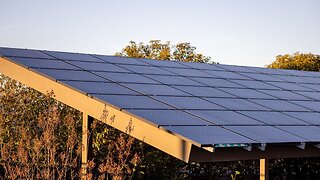 1:10
1:10
SWNS
1 year agoMajority of Americans use cost-effective ways of staying eco-friendly
23 -
 2:20
2:20
keepitrealneal
1 year ago😱🤬Look At This !@%...PLEASE STOP USING PLASTIC!☮️🌎
8 -
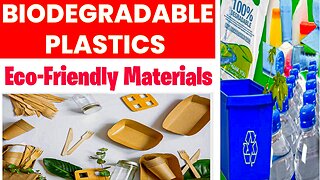 8:13
8:13
EcoDrive Tech
2 months agoSaying Goodbye to Pollution: The Biodegradable Plastic Revolution!
16 -
 15:58
15:58
Grains and Grit
2 years agoHow to Store Homemade Bread Made from Freshly Milled Wheat | Linen Bread Bags vs Plastic Bread Bags
2462 -
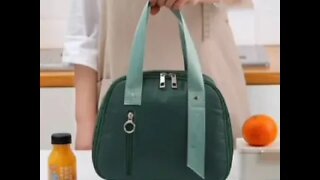 0:16
0:16
Bhagyaa
1 year agoReusable Lunch Bag Insulated
28 -
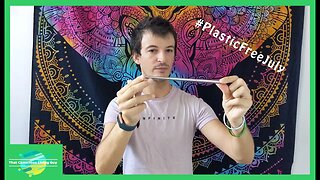 21:09
21:09
That Conscious Living Guy
8 months agoMy Top Tips For Plastic Free July - How To Reduce Your Plastic Usage
164 -
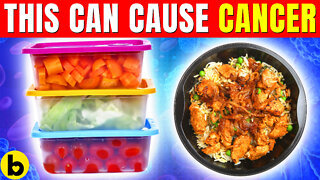 10:37
10:37
Bestie
1 year agoSTUDY: Plastic Food Packaging May Be Causing Cancer & Infertility
1461 -
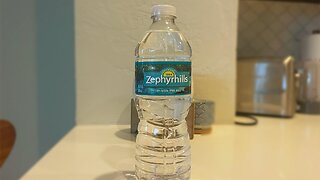 15:00
15:00
reecedaniels
1 year agoplastics are killing us and the environment
25 -
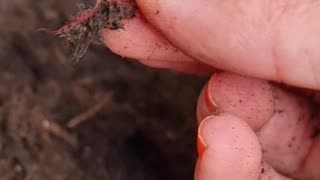 0:43
0:43
Sloveniancookinghousewife
11 months agoPlastic, glass and other rubbish in Store Bought Bagged Soils
14